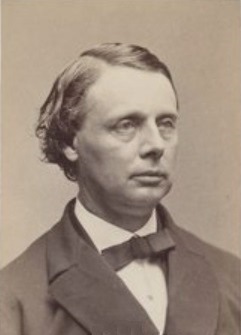Get Today in Masonic History into your Inbox. Sign up today for one of our email lists!
Need an article for your Trestleboard/Newsletter see our Use Policy
William Gaston Passes Away

Today in Masonic History William Gaston passes away in 1894.
William Gaston was an American politician.
Gaston was born on October 3rd, 1820 in Killingly, Connecticut. He was educated in local schools before attending an academy in Plainfield, Connecticut. After he enrolled in Brown University and graduated in 1840 with high honors.
After graduation Gaston moved to Roxbury, Massachusetts where his parents had taken up residence. There he studied the law and in 1844 passed the bar. In 1846 he opened a private practice in Roxbury.
In 1849, Gaston entered politics. First by being elected to the Roxbury common council serving for 4 years, the last two of those years were as the council president. In 1853 and 1854 he served in the Massachusetts state legislature as a Whig. In 1854 he, along with other members of the Whig party were swept out of office by the Know Nothing party, a political movement which favored natural born citizens over the large number of immigrants coming into the country, particularly Irish and German Catholics. In 1856 he was returned to the legislature, largely with the support of the Irish American community due to his opposition of the Know Nothing cause.
In 1860 Gaston was elected as Mayor of Roxbury. He worked to support the Union cause by raising troops in Roxbury and then visiting them in the field. He served two terms as Mayor.
After a failed attempt to be elected to the United States Senate, Gaston was elected Mayor of Boston. He served two terms as Mayor, although his second term was marked by the Great Boston Fire of 1872. Gaston was criticized for his handling of the fire. He also mishandled a smallpox outbreak in the city prior to the fire.
In 1873, Gaston had a failed run for the Governors office. His opponent got elected the following year to the United States Senate and Gaston ran and won against the Acting Governor. The two major events during Gaston's single term as Governor was the changing of prohibition laws in the state, which Gaston opposed and ran on in his campaign. The other was public outrage at Gaston when he failed to sign the death warrant of convicted murderer Jesse Pomeroy. Pomeroy was only 14 when he committed the 1st degree murder of a young girl. Despite the conviction and the advice of the Governor's Council, Gaston refused to sign the order. Gaston's opponent when he took office, also refused to sign the death warrant and eventually the death sentence was commutated to life in solitary confinement.
Gaston passed away on January 19th, 1894.
Gaston was a member of Washington Lodge in Roxbury, Massachusetts.
This article provided by Brother Eric C. Steele.

